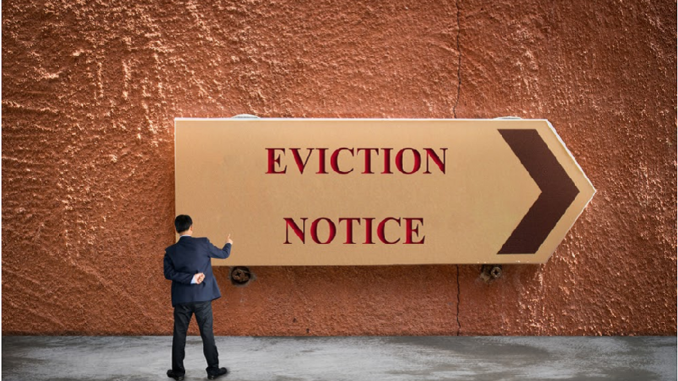
A commercial landlord should know the laws concerning commercial evictions because they differ from residential evictions in many ways. It is important to get all the necessary information before attempting to evict a commercial tenant. Getting into conflict with a tenant is not recommended. Therefore, make sure to speak with your legal advisor for advice on the procedures for evicting your commercial tenant.
When it comes to evicting a tenant from a commercial building, the process can be complicated because the rights of both tenant and landlord rights considered. It is a balancing act.
The most common reason for eviction is because of non-payment of rent. Once a landlord begins the process of a commercial eviction, he should not backpedal. Moreover, read further to get an idea of all the Commercial Eviction Rules that you need to know.
1. Why may a landlord need to file a commercial eviction?
- Non-payment of rent
- Breach of covenant
- Not using the property for the agreed purpose
- Failure to maintain Insurance
- Subletting without permission of the landlord
- Failure to pay taxes on a triple net “NNN” lease
- Failure to pay common area maintenance costs (Cam charges)
The landlord needs to be familiar with the commercial eviction laws to move ahead with the eviction process. The procedures for commercial eviction take time and cost money if you do it the right way and hire a lawyer.
In all cases, the burden of looking for proof is solely on you when you want to evict a tenant. Because both the tenant and the landlord have equal rights, the verdict will take time. However, in any case, the owner of the building is not allowed to violate the laws and evict a tenant on his own by cutting power or changing locks.
2.Tenant declares bankruptcy
nother reason for commercial eviction is when the tenant declares bankruptcy. Although the laws are in favor of the landlord even if the commercial tenant declares bankruptcy, individual state laws may still have an impact on this issue. According to law, if a tenant has filed a case of bankruptcy before the landlord attempts to evict, there is an automatic stay in favor of the tenant. Under this circumstance, the landlord will not be able to begin the eviction procedures. Nevertheless, there is still an option for the landlord to ask the court to lift the stay.
3. The commercial eviction rules that you need to know
In the event of facing a problem with a commercial tenant, the proprietor can simply initiate procedures for eviction. As a landlord and when doing business, you need to think well before considering evicting the tenant. Be sure to follow the correct procedures and evict a tenant lawfully. Below are general guidelines and all the commercial eviction rules that you need to know.
Serve the tenant a termination notice
The very first stage is to send the tenant a termination notice. Before attempting eviction in the court, the landlord should terminate the tenancy. As per the laws, the landlord should serve the tenant with a notice for cause or without cause. Both have their own time frame.
File an eviction court case
Even after having served the tenant with a termination notice, if the latter fails to abide by it, then the landlord moves forward with a lawsuit for eviction. At this stage, the landlord will file a complaint case and send it to the tenant. At the same time, the landlord will serve a summons on the tenant.
Wait for the tenant to respond
Upon receiving the complaint, the tenant may answer it by denying the allegations and submitting a defense. The tenant will have a specified time limit as described in the summons to respond to the complaint.
Judgment for possession procedure
Moreover, if the tenant did not respond to the complaint, a nonattendance judgment is issued by the court in favor of the landlord. The verdict then entitles the landlord to take possession of the building.
Evict the tenant
The last stage is to remove the tenant. However, this should be done with the assistance of a sheriff’s deputy. The law enforcement officer will have to notify the tenant of the eviction and possibly escort him off the property.
Finally, the landlord should avoid illegal eviction. Do the eviction process the right way, according to law to avoid being sued yourself.

Leave a Reply
You must be logged in to post a comment.